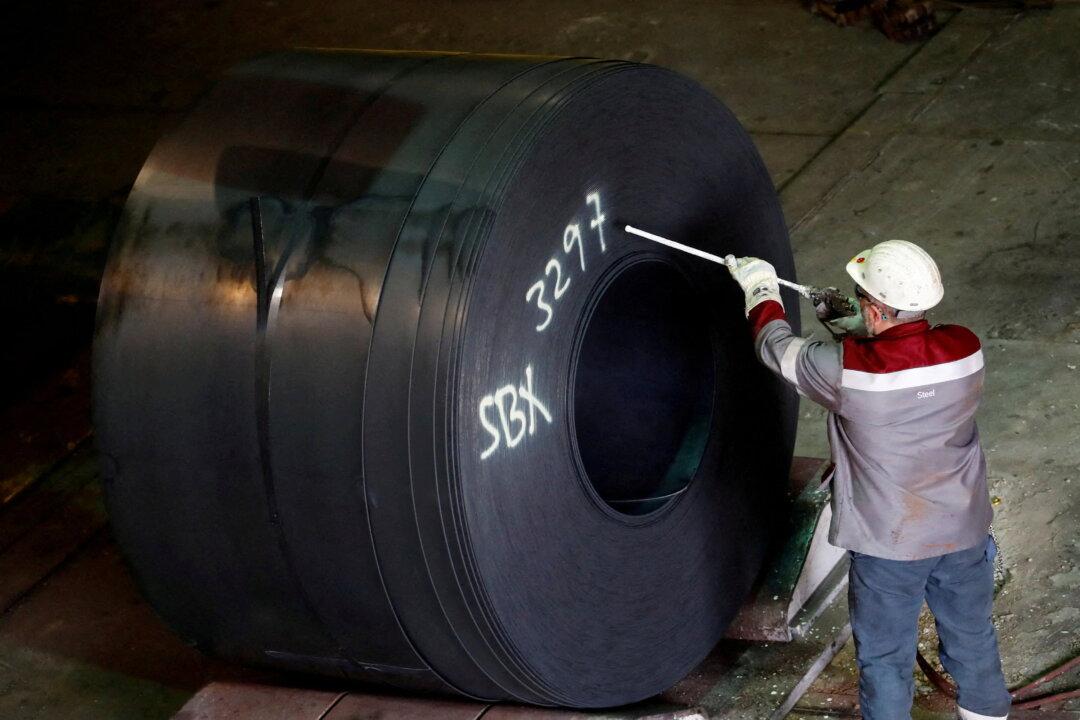BERLIN—German manufacturers slightly increased outputs in May, buoyed by order backlogs, increased staffing, and, in some cases, improved materials availability, but a further decline in new orders mean rough seas ahead, a survey found on Wednesday.
S&P Global’s final Purchasing Managers’ Index (PMI) for manufacturing, which accounts for about a fifth of the economy, came in at 54.8, barely changed from a flash reading of 54.7.





